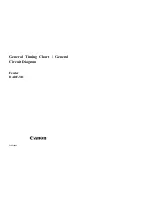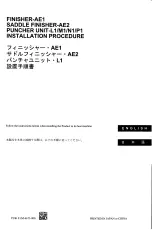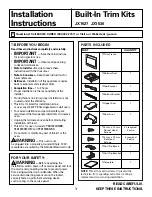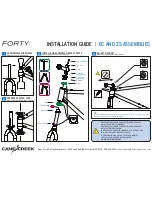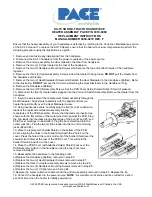
QTS-6000 Series
Analog Transmitter/Sensor
B71050-021-000-RB.doc
ELECTROCHEMICAL TRANSMITTER
JUL. 18, 2007
PRODUCT MANUAL
2
2. BASIC DESCRIPTION
The QTS-6100 Series Universal Electrochemical Toxic Sensor/Transmitter is a significant upgrade from our
previous electrochemical sensor/transmitters. It features improved performance and the ability to configure
the transmitter for any of long list of electrochemical sensor elements offered by QEL. The transmitters
operate over a wide tolerance of DC power and provide a 4 to 20 mA DC output in a two-wire connection.
The sensor portion of these units is a City Technology compact electrochemical sensor element, selected
specifically for the gas to be measured. These elements are completely sealed and are a non-consuming
technology. This means that the electrolyte solution is not consumed by the normal operation of the sensor.
Typical life for these sensors is two to three years in normal operation, with recalibration recommended
every three months. See Section 4 - “Theory of Operation” for details on how these sensors function.
The transmitter portion of these units uses solid state components on two circuit card assemblies to measure
the DC micro amp signal from the sensor element and convert it to a 4 to 20 mA DC output. The
transmitter electronics can be field configured via solderless shorting links to accept any one of the range of
electrochemical sensors offered. Across this range there are differing requirements for battery voltage, gain
resistance, a shorting FET, and the polarity of the sensor output. See Section 6 - “Configuration” for details
on configuring the transmitter.
The transmitter electronics are powered with two-wire 24 VDC and transmit the 4 to 20 mA DC output over
the same two wires. They have been designed to provide protection from interference caused by Radio
Frequency (RFI) and Electro-Magnetic (EMI) sources. The designs have been tested for proper operation
under radiated interference of 4 watts at a distance of 1 meter. See Section 5 - “Installation” for details on
proper wiring and grounding to ensure proper operation.
Accessible from the top of the transmitter are test jacks that will accept standard digital multimeter test leads.
The transmitter 4 to 20 mA DC signal can be monitored from these test points without interrupting the output
signal. Two trim potentiometers provide adjustment of zero and span for accurate calibration of the
transmitter to specific gas concentrations. No linearization adjustments are required as electrochemical
cells are inherently linear.
The sensor/transmitter assemblies are offered in a variety of enclosures. These range from general purpose
NEMA 1 enclosures through to explosion-proof enclosures listed by CSA, UL, and FM for Class 1, Division
1, Groups B, C, D service. The same transmitter board assembly is used for all enclosure types. The plug-
in sensor element connects directly to the transmitter circuit card assembly in the ABS plastic NEMA 1 and
NEMA 4 enclosures. An aluminum or stainless steel sealed sensor assembly is provided for the plug-in
sensor element on the explosion-proof enclosures. The sensor connects to the circuit card assembly via a
connector at the end of leads extending from the sensor assembly.























